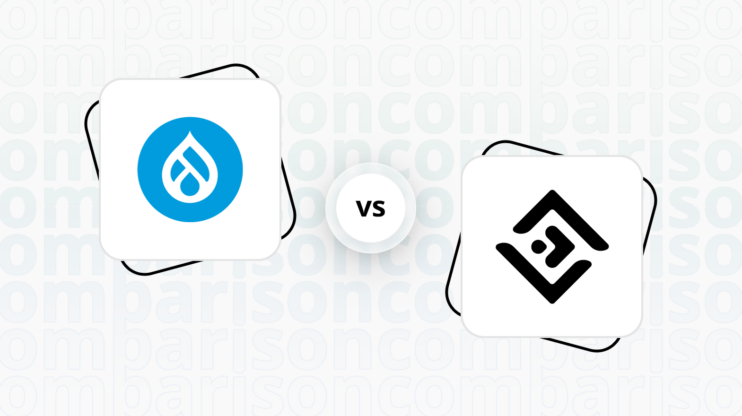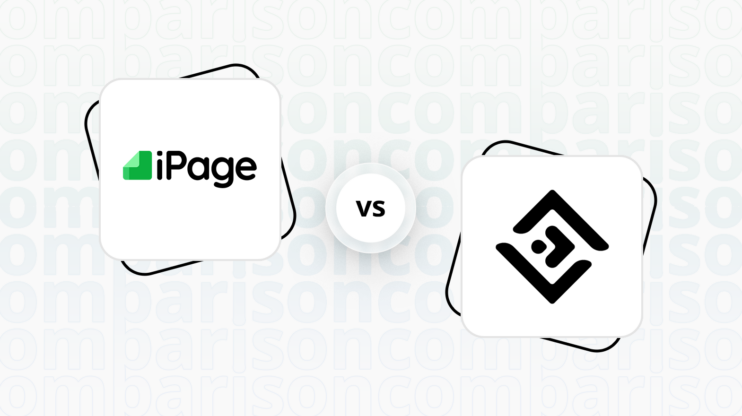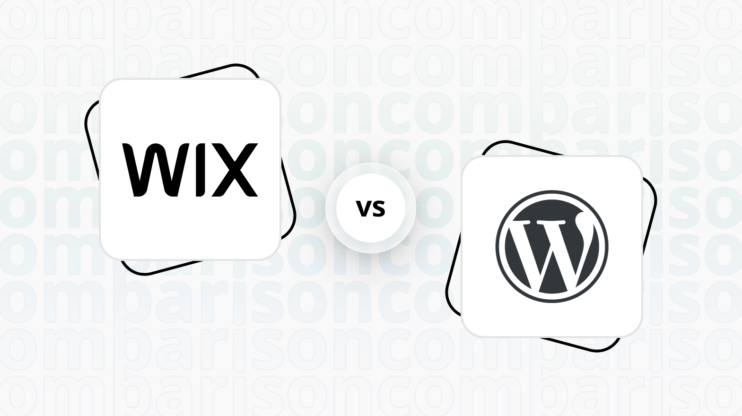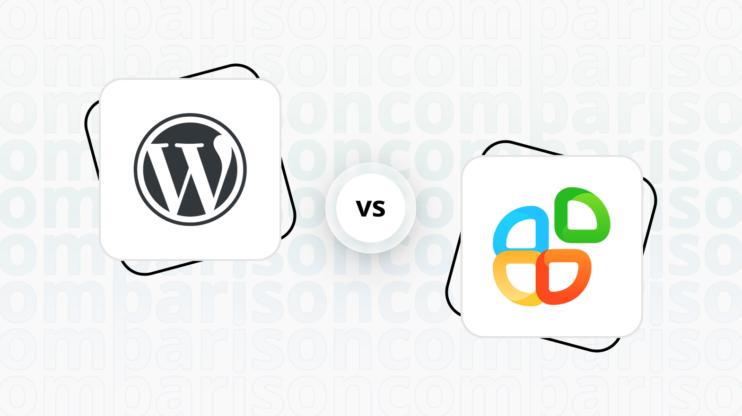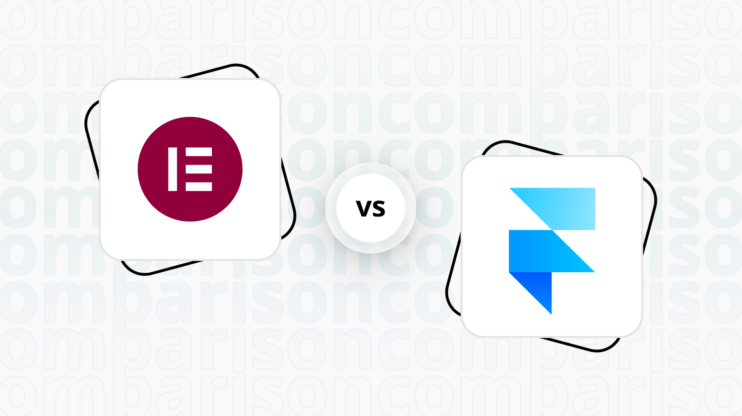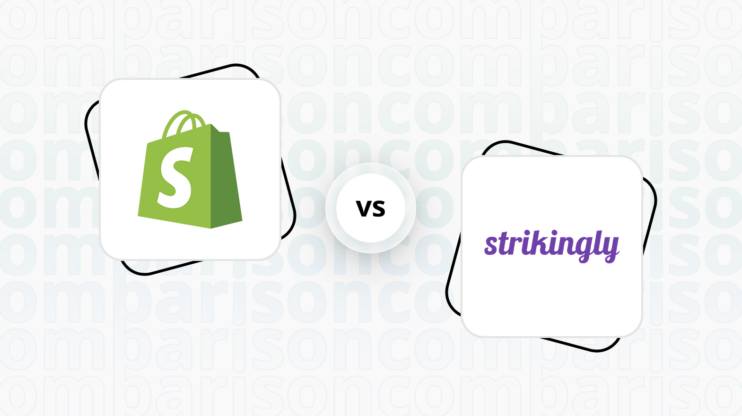Final verdict
Drupal and iPage offer distinct advantages depending on the user’s needs, with Drupal leading in flexibility and iPage in user-friendliness.
-
Drupal (Overall Grade: 6.4/10)
excels as an open-source CMS, offering unparalleled flexibility, a vast array of design options, and robust ecommerce capabilities. It’s ideal for users with technical expertise or those requiring complex, customized websites. Drupal’s extensive modules and themes, combined with its strong security features and AI capabilities, make it a powerful choice for developers and large projects. -
iPage (Overall Grade: 6.1/10)
, on the other hand, is more suited for small businesses and individuals looking for an easy-to-use, all-in-one website builder and hosting solution. Its user-friendly interface, affordable pricing plans, and solid hosting performance cater to users without technical backgrounds. While it may not offer the same level of customization or advanced features as Drupal, iPage provides a straightforward path to getting a website up and running quickly.

|

|
|
|---|---|---|
|
Design functionalities & templates |
7.8 |
7.0 |
|
Ease of use |
5.4 |
7.6 |
|
Ecommerce |
7.5 |
5.7 |
|
Website Editors |
7.5 |
6.8 |
|
Product testing options |
7.1 |
2.5 |
|
Price |
5.7 |
7.3 |
|
Hosting quality |
0 |
7.7 |
|
Website speed optimization |
6.4 |
7.4 |
|
Plugins and integrations |
8.6 |
6.3 |
|
Marketing features |
8.0 |
7.2 |
|
Customer support |
6.7 |
6.9 |
|
Security |
8.3 |
7.5 |
|
AI capabilities |
7.5 |
3.0 |
|
User Management |
9.1 |
3.2 |
| Overall |
6.4 |
6.1 |
Best for ecommerce
 7.5
7.5
 5.7
5.7
Verdict
: For users needing advanced ecommerce capabilities and customization, Drupal is the superior choice. iPage, while user-friendly, is better suited for simpler ecommerce needs.
-
Drupal
: Offers a comprehensive suite of ecommerce features through Drupal Commerce, including complex pricing models, product variations, and extensive customization options. It’s ideal for businesses requiring a robust online store with specific functionalities. -
iPage
: Targets small to medium-sized businesses with an easier setup process and basic ecommerce features. It’s a good option for those who prefer simplicity over complexity in their ecommerce solutions.
Best for informational & business websites
 7.5
7.5
 7.2
7.2
Verdict
: Drupal edges out iPage for informational and business websites, thanks to its superior flexibility and extensive customization options, despite iPage’s user-friendly approach.
-
Drupal
: With a score of 7.5, Drupal stands out for its robustness and adaptability, making it ideal for creating complex informational websites. Its open-source nature allows for a high degree of customization through themes and modules, catering to a wide range of web development needs. -
iPage
: Scoring 7.2, iPage offers a straightforward, user-friendly platform suitable for small businesses and personal projects. While it provides a good foundation for informational sites, its capabilities are somewhat limited compared to Drupal’s extensive customization options.
Detailed comparison
Design functionalities & templates
Design FunctionalitiesRepresents how well each platform allows for creative design and customization of websites.Score Components:
- Template Variety (30%): Range and quality of design templates.
- Customization (30%): Flexibility and options for design alterations.
- User Interface (20%): Ease and intuitiveness of the design process.
- Responsiveness (10%): Adaptability to different devices and screen sizes.
- Innovation (10%): Unique design features and tools.
 7.8
7.8
 7.0
7.0
🏆
Winner: Drupal.
If you’re looking for a platform that offers more creative control, a wide array of design features, and a vast array of templates and designs, Drupal is the preferred choice.
Drupal, as a highly flexible and powerful content management system, offers a vast array of templates and designs to cater to virtually any website need. With thousands of themes available, users can choose from minimalist designs, industry-specific layouts, and highly customizable multipurpose themes.
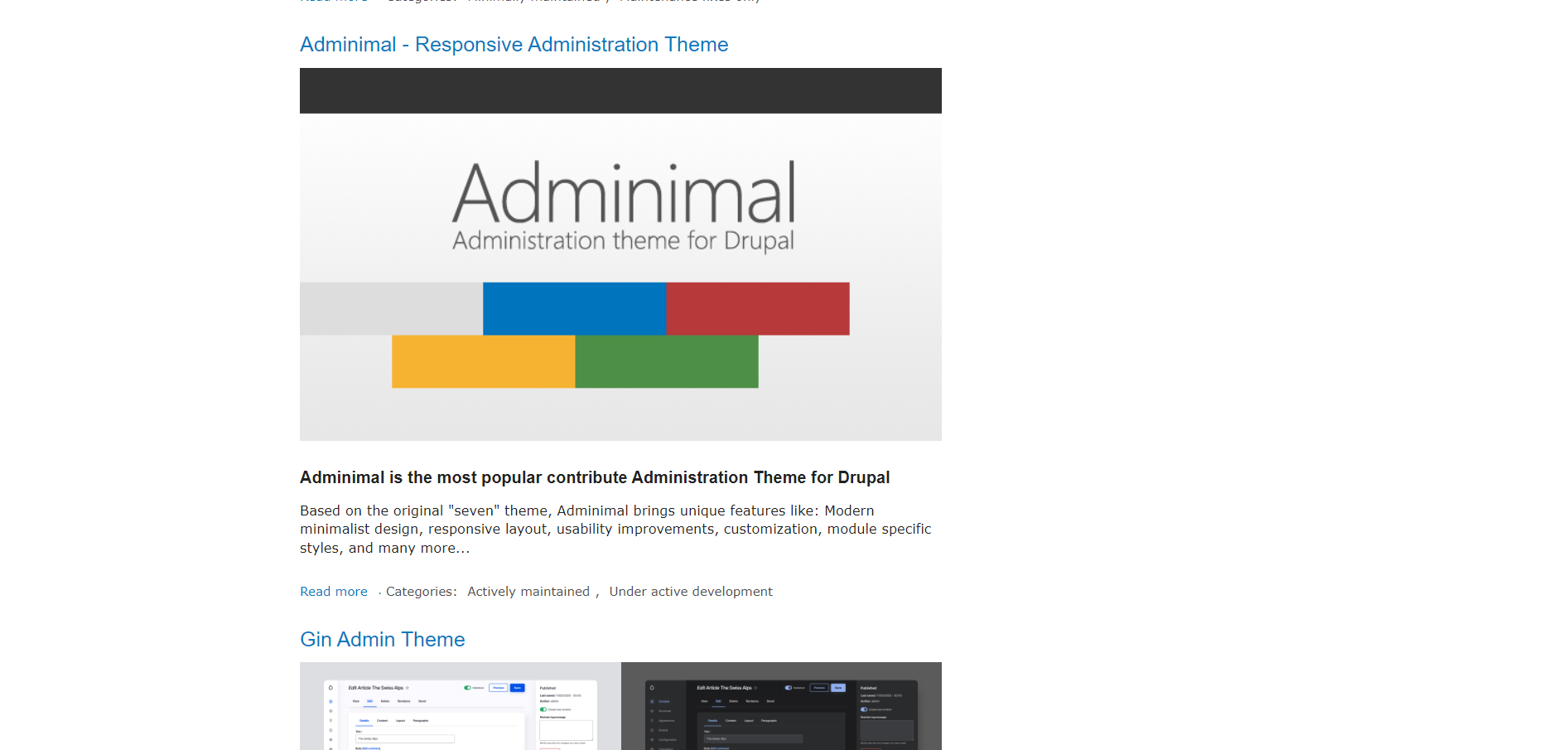
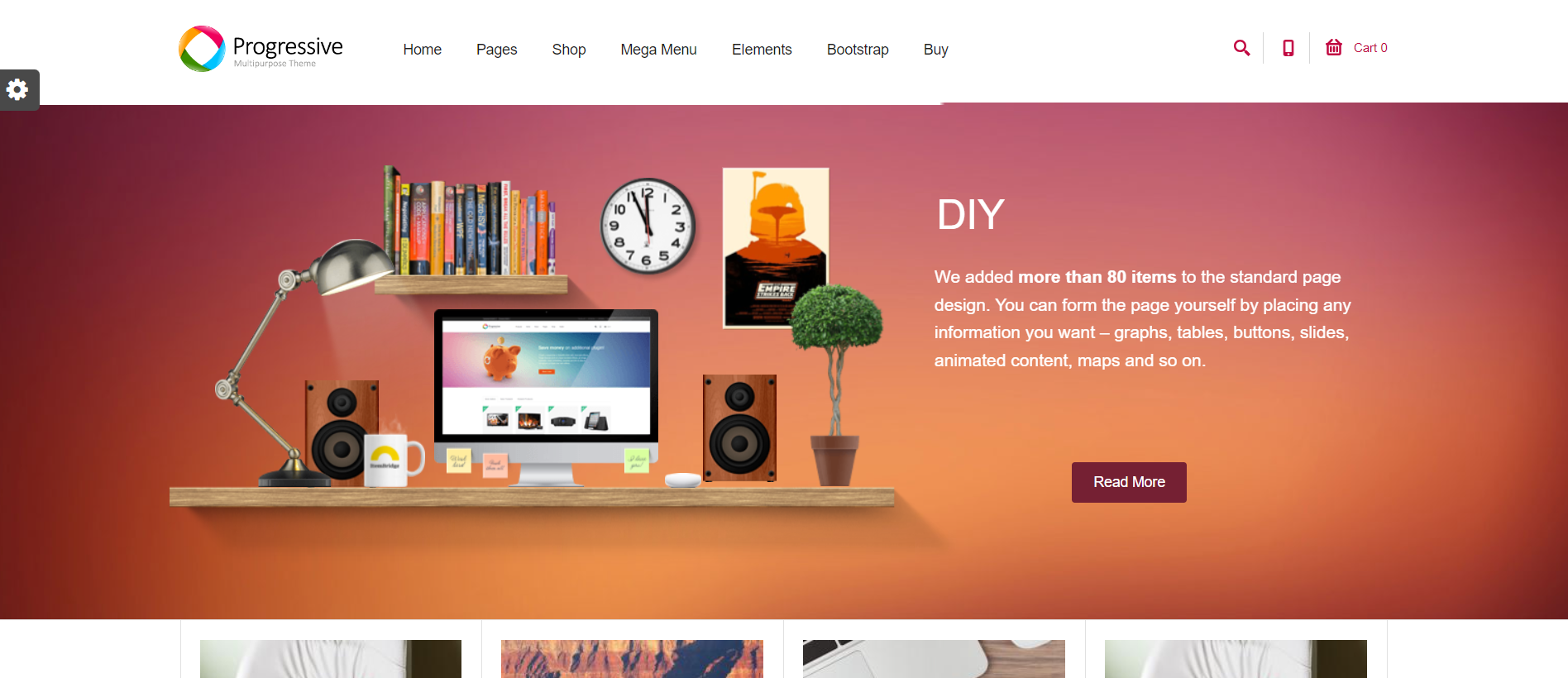
Compared to Drupal, iPage offers a wide variety of templates and designs, catering to users with diverse needs and preferences. However, while it provides a good level of customization for beginners and intermediate users, advanced users might find its flexibility somewhat limited compared to Drupal.
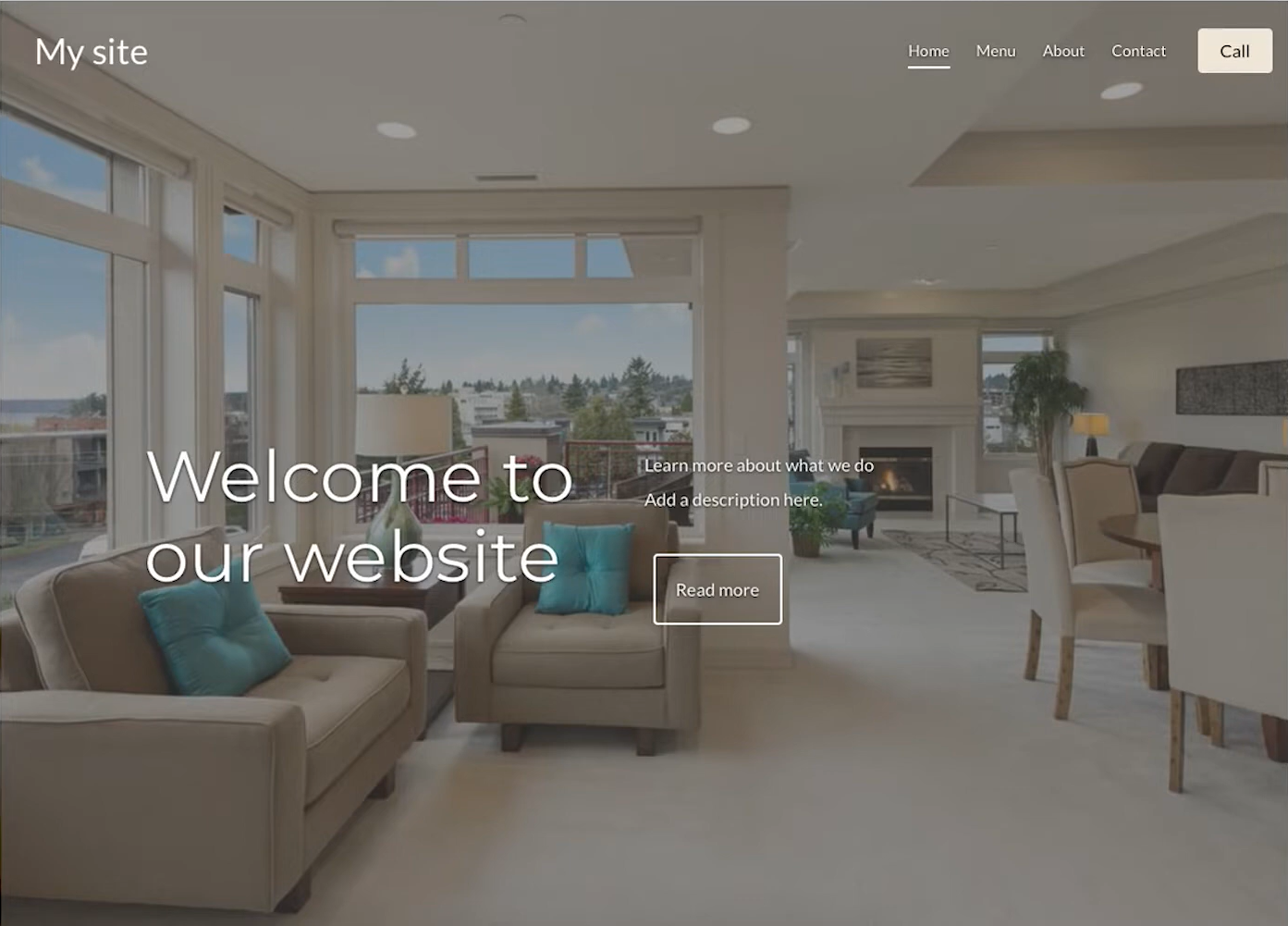
Get a head start on website creation with AI
Create a custom website tailored to your business needs 10X faster with 10Web AI Website Builder!
Ease of use
Ease of useReflects the platform’s overall user-friendliness.Score
Components:
- Learning curve (40%): Quickness and ease of getting started.
- Interface design (30%): Simplicity and intuitiveness of layout.
- User guidance (20%): Quality of tutorials and support.
- Flexibility (10%): Adaptability to various user skills.
 5.4
5.4
 7.6
7.6
🏆 Winner: iPage
. Scoring 7.6, iPage is designed with simplicity in mind, making it highly accessible for users with no prior web development experience. Drupal, with a score of 5.4, offers a robust platform but with a steeper learning curve, especially for those new to web development. If ease of use is a priority, iPage is the clear winner in this category.
Learning Resources
🏆 Winner: Drupal
. While both platforms offer solid learning resources, Drupal goes a step further with its wide array of detailed tutorials and active community forums, making it easier for users to learn and adapt.
For ecommerce
EcommerceMeasures the platform’s effectiveness in supporting online business activities.Score Components:
- Ecommerce themes and templates (20%): Variety and design of templates.
- Product management (25%): Ease of managing and organizing products.
- Payment options (25%): Variety and convenience of payment methods.
- Ecommerce features (20%): Features for managing an ecommerce store.
- Integration (10%): Compatibility with external e-commerce tools and services.
 7.5
7.5
 5.7
5.7
Drupal and iPage both offer ecommerce capabilities, but they cater to different needs and audiences. Drupal, with its Drupal Commerce module, provides a flexible and robust ecommerce solution that can be seamlessly integrated into its content management system. It’s suitable for businesses that require complex pricing models and product variations. However, it has a steep learning curve and may require extensive customization to meet specific ecommerce needs. On the other hand, iPage is more suitable for small to medium-sized businesses looking to establish an online store with simpler setups. It offers integration with shopping carts like AgoraCart, PayPal for payment processing, and an easy-to-use website builder.

|

|
|
|---|---|---|
|
Ecommerce themes and templates |
7.8 |
5.5 |
|
Product page customization |
8.3 |
5.0 |
|
Payment processing and commissions |
7.5 |
6.0 |
|
POS capabilities |
5.5 |
3.0 |
|
Payment gateways |
7.7 |
6.5 |
|
Product numbers |
7.0 |
4.0 |
|
Additional ecommerce features |
8.0 |
5.5 |
Drupal ecommerce features:
- Shopping Cart and Checkout Process
- Payment Gateway Integration
- Order Management and Invoicing
- Tax Calculation and VAT Support
- Shipping and Fulfillment
- Promotions and Discounts
- Reporting and Analytics
- Security and Compliance
iPage ecommerce features:
- Inventory Management and Tracking
- Coupon Codes and Promotions
- SEO Tools
- PayPal Integration
Ecommerce themes & templates
Drupal offers a wide array of ecommerce themes designed to cater to different types of online stores, from clean and simple designs to more sophisticated and feature-rich options. These themes are built with responsiveness in mind, ensuring that stores function seamlessly across various devices. On the other hand, iPage offers a variety of ecommerce-specific templates designed to cater to online stores and businesses. However, users might find some limitations in terms of customization and advanced ecommerce functionalities compared to specialized ecommerce platforms.
Product page customization
Drupal offers extensive customization possibilities for product pages through its modular architecture, allowing for detailed content types, flexible displays with Views, and theme customizations. The Drupal Commerce module enriches e-commerce functionalities, enabling tailored product management, checkout flows, and payment systems. On the other hand, iPage’s website builder offers a range of ecommerce product page customization options, allowing users to design their storefronts with various templates, adjust layouts, and incorporate multimedia elements like images and videos to showcase products. However, limitations may include less flexibility in advanced customization or coding for those who require unique, highly tailored functionalities beyond the provided templates and settings.
Payment processing
When it comes to payment processing, Drupal supports a wide range of payment gateways through third-party modules, including popular ones like PayPal, Stripe, and Authorize.Net. While Drupal itself does not charge any commissions or transaction fees, the individual payment gateways integrated with it do have their own fee structures. iPage supports several payment options for eCommerce, including major gateways like PayPal, Stripe, and others, catering to a wide range of currencies and countries. iPage does not charge commissions for transactions, commissions are charged by the gateways themselves.
Website Editors
Website EditorsEvaluates the platforms’ website building and editing capabilities.Score Components:
- Customization tools (40%): Range and power of editing features.
- Editor usability (30%): User experience within the editor.
- Design flexibility (20%): Freedom in layout and design changes.
- Update and maintenance ease (10%): Simplicity of updating and maintaining the site.
 7.5
7.5
 6.8
6.8
🏆
Winner: Drupal
. Drupal, with a score of 7.5, offers a wide range of features tailored for content creation and management. It supports rich text editing, enabling users to format text, insert links, images, and media, as well as create tables and lists with ease. The editor is highly customizable, allowing administrators to configure toolbars and options according to the needs of their site. Furthermore, it integrates seamlessly with Drupal’s content management system, supporting features like automatic content saving, version control, and access control, making it a powerful tool for building and managing diverse web content.
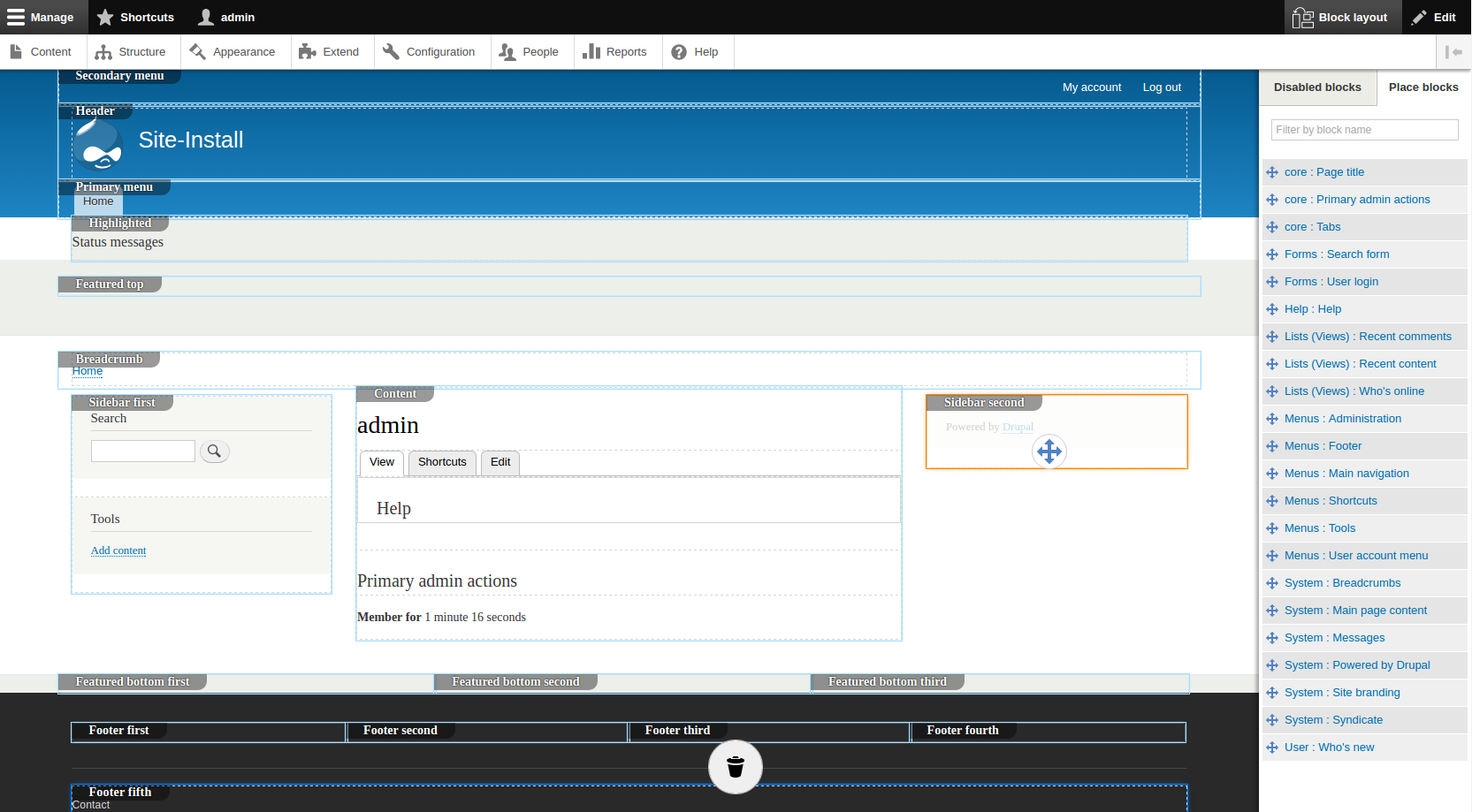
iPage’s editor, scoring 6.8, is designed for ease of use, catering to both beginners and those with some web design experience. It offers a drag-and-drop interface, allowing users to easily add, remove, and customize elements on their web pages without needing to code. Users can choose from a variety of templates that are responsive and customizable to fit their brand or personal style. Additionally, the editor includes features for adding social media links, integrating e-commerce functionalities, and optimizing for search engines, making it a versatile tool for creating a wide range of websites.
Mobile editor/app
 0
0
 5.0
5.0
🏆
Winner: iPage
. Neither Drupal nor iPage offer a dedicated mobile editor app. However, iPage allows users to edit their websites on a mobile browser, albeit with some limitations. This feature is not available on Drupal, giving iPage an edge in this category.
Product testing options
Product Testing OptionsAssesses the options for trying out platform features before commitment.Score Components:
- Trial quality (40%): Extent and usefulness of the trial or free version.
- Feature accessibility (30%): How many features are available to test.
- Trial duration (20%): Length of the trial period.
- Ease of transition (10%): Smoothness of moving from trial to paid plans.
 7.1
7.1
 2.5
2.5
Overall Result
:
Drupal Wins
. Drupal scores 7.1 in product testing options, significantly higher than iPage’s 2.5. Drupal, being an open-source CMS, is free to use and doesn’t require a trial version or premium features testing. iPage, on the other hand, doesn’t offer a free or trial version, but allows testing of all features during the 30-day refundable period.

|

|
|
|---|---|---|
|
Free Plan |
Yes (open-source software) |
No |
|
Trial Duration |
No | iPage does not have free trial |
|
Testing Premium Features |
No |
All features during 30-day refund period |
Price
PriceLooks at the cost-effectiveness and value for money of each platform.Score Components:
- Plan value (40%): What each pricing tier offers.
- Transparency and clarity (30%): Clearness of pricing structures.
- Flexibility of plans (20%): Range of options to suit different budgets.
- Hidden costs (10%): Additional expenses not included in the plan.
 5.7
5.7
 7.3
7.3
While Drupal is free, it requires separate purchases for domain, hosting, and website builder subscriptions. iPage, on the other hand, offers comprehensive services with different pricing plans, and provides significant discounts for annual subscriptions.

|

|
|
|---|---|---|
|
$10-$20 |
No offering at this amount. |
Basic ($15.99/month): Simple website or blog, 1 website, 10 GB SSD, free domain, managed WordPress, free SSL for 1st year. Value for price: 6.5 |
|
$20-$30 |
No offering at this amount. |
Choice Plus ($27.99/month): Multiple sites with storage, security, backups, 3 websites, 40 GB SSD, daily backups, domain privacy, malware scanning. Value for price: 7.5 |
|
$30-$34 |
No offering at this amount. |
Online Store ($32.99/month): Online selling with eCommerce tools, 3 websites, 40 GB SSD, store features like unlimited products and secure payments. Value for price: 8.0 |
|
$34+ |
No offering at this amount. |
Pro ($34.99/month): High traffic sites, advanced storage, 5 websites, 100 GB SSD, optimized for high traffic, enhanced security and backups. Value for Price: 9.0 |
location. As a result in rare cases the prices displayed here can differ from the ones you see on their
websites.
Hosting quality
Hosting
qualityExamines the reliability and performance of the hosting solutions.Score Components:
- Uptime (40%): Consistency and reliability of website availability.
- Speed (30%): Loading times and performance.
- Bandwidth and storage (20%): Sufficiency of resources provided.
- Data centers (10%): Quality and distribution of hosting infrastructure.
 0
0
 7.7
7.7
🏆
Winner: iPage
iPage offers a range of affordable hosting services including shared, WordPress, and VPS hosting, with unlimited storage and bandwidth for various website needs. However, its performance speed and scalability features may not meet the expectations of all users, particularly those with high-traffic sites. Additional costs for backups, security features, and significant price increases upon renewal are potential downsides. On the other hand, Drupal, being an open-source CMS, does not directly provide hosting services, hence its hosting quality score is 0.

|

|
|
|---|---|---|
|
Do they offer hosting? |
No |
Yes |
|
Data Centers: |
Depends on hosting provider |
2 data centers: US, Europe |
|
Type of hosting: |
Depends on hosting provider |
Managed WordPress Hosting |
|
Uptime: |
Depends on hosting provider |
99.9% |
|
Uptime Guarantee: |
Depends on hosting provider |
No |
Website Speed Optimization
Website Speed OptimizationEvaluates optimization of website loading timesScore Components:
- PageSpeed Score (30%): Google’s score indicating performance optimization.
- Loading Time (30%): The average time until a website is fully interactive.
- Mobile Optimization (15%): Optimization effectiveness for mobile devices.
- Resource Optimization (15%): Optimizing images, scripts, and other heavy resources.
- CDN Usage (10%): Use of CDN to enhance speed across geolocations.
 6.4
6.4
 7.4
7.4
🏆 Winner: iPage
Both Drupal and iPage prioritize website performance and page speed, but iPage has a slight edge in terms of website speed optimization.

|

|
|
|---|---|---|
|
Focus |
User-guided optimization |
Server optimizations, Caching, CDN |
|
Performance Tools |
User-guided optimization |
Server optimizations, Caching, CDN |
|
Key Strategies |
User-guided optimization |
Web Server optimizations, Caching, CDN, Database optimization, SEO optimization |
|
Load Times |
Varies depending on optimization and website complexity |
2.6s average |
|
Page Speed Scores Range |
Varies depending on optimization and website complexity |
72/100 average |
|
Core Web Vitals Improvement |
Depends on users |
LCP, FID, CLS improvements |
iPage focuses on server optimizations, caching, CDN, database optimization, and SEO optimization to enhance website speed. It has an average load time of 2.6 seconds and an average PageSpeed score of 72/100. iPage also emphasizes improvements in Largest Contentful Paint (LCP), First Input Delay (FID), and Cumulative Layout Shift (CLS) to improve Core Web Vitals.
On the other hand, Drupal’s speed optimization is largely user-guided. The load times and PageSpeed scores vary depending on the optimization and complexity of the website. The improvement in Core Web Vitals also depends on the users. Despite its flexibility and extensibility, Drupal’s website speed optimization score is slightly lower than iPage’s.
Get a head start on website creation with AI
Create a custom website tailored to your business needs 10X faster with 10Web AI Website Builder!
Plugins and integrations
Plugins and integrationsMeasures the range and effectiveness of additional plugins and integrations.Score Components:
- Variety of options (40%): Range of available add-ons.
- Integration smoothness (30%): Ease of integrating plugins into the site.
- Quality of plugins (20%): Functionality and reliability of the options.
- Custom integration capabilities (10%): Support for custom or third-party integrations.
 8.6
8.6
 6.3
6.3
🏆 Winner: Drupal.
With a score of 8.6, Drupal outperforms iPage, which scores 6.3. Drupal’s strength lies in its vast array of over 51,000 modules, which are predominantly free and open-source. These modules extend Drupal’s capabilities beyond its core features, enabling functionalities like advanced SEO tools, e-commerce solutions, and custom content types. Key integrations like Commerce for online stores, Views for content display management, and Google Analytics for web traffic analysis exemplify Drupal’s adaptability.
On the other hand, iPage offers a variety of plugins and extensions, with options ranging from SEO tools to security enhancements. The pricing for these plugins and extensions varies widely, with some available for free, while others require a one-time purchase or a recurring subscription fee. This allows users to customize their websites according to their needs and budget. However, compared to Drupal, iPage’s offerings are less extensive.
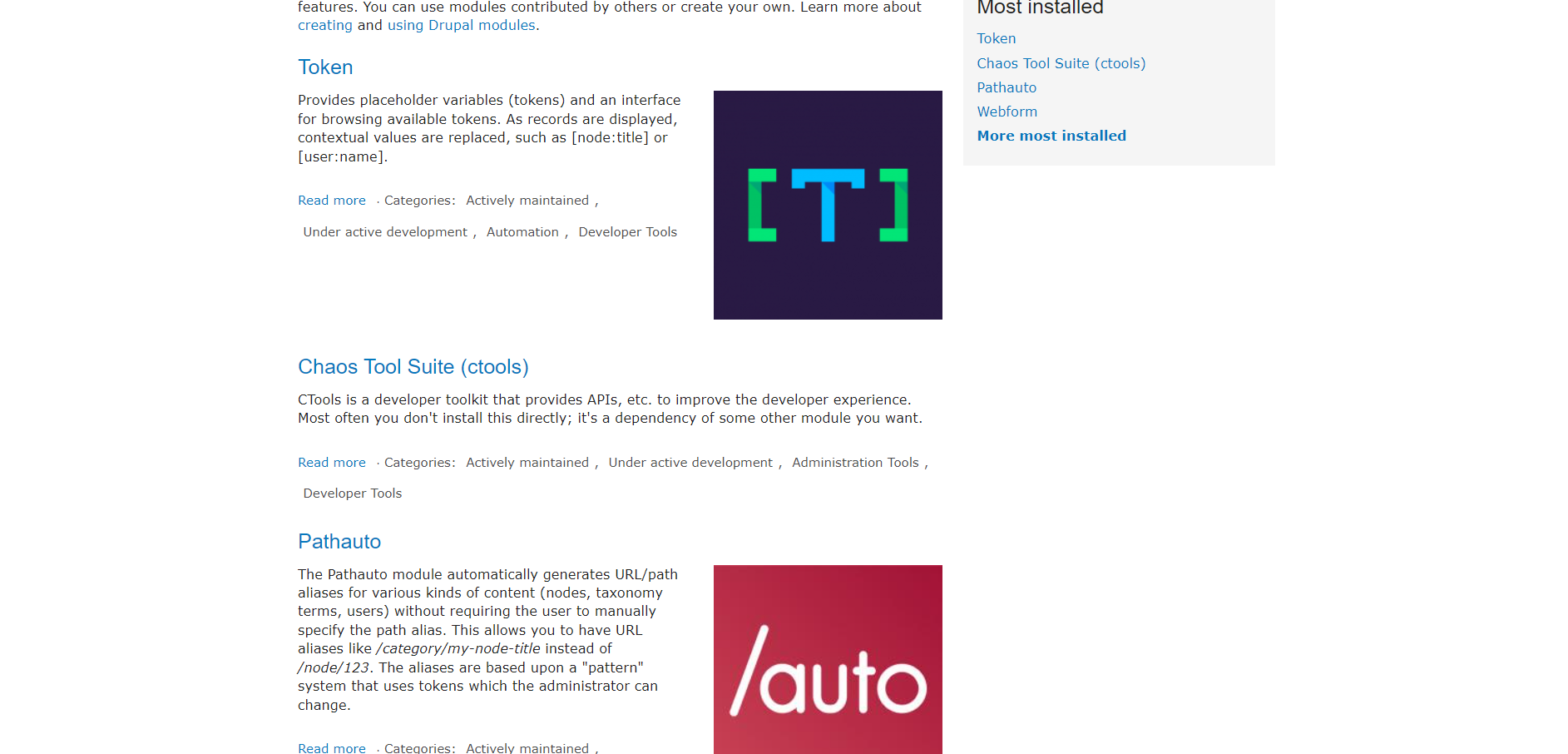
Marketing Features
Design FunctionalitiesRepresents how well each platform allows for creative design and customization of websites.Score Components:
- Template Variety (30%): Range and quality of design templates.
- Customization (30%): Flexibility and options for design alterations.
- User Interface (20%): Ease and intuitiveness of the design process.
- Responsiveness (10%): Adaptability to different devices and screen sizes.
- Innovation (10%): Unique design features and tools.
 8.0
8.0
 7.2
7.2
🏆
Overall Winner: Drupal
. Drupal stands out for its flexibility and extensibility, enabling developers to create complex websites with custom functionalities. iPage is strong in user-friendly web hosting and site builder platform, ideal for those without technical expertise.

|

|
|
|---|---|---|
|
SEO Tools |
Yes, with SEO modules such as Yoast SEO |
Yes |
|
Email Marketing |
Yes, but with third-party extensions, such as MailChimp |
Yes |
|
Blogging |
Yes |
Yes |
|
Social Media Integration |
Yes |
Integrated social media buttons and features |
|
Analytics and Reporting |
Yes, basic built-in features, and Google Analytics integrations |
Option to integrate Google Analytics |
|
Ads and Promotions |
Yes, but with third-party extensions |
Offers SEO, social media integration, email marketing |
Customer Support
Customer supportEvaluates the quality and availability of support options.Score Components:
- Response time (40%): Speed of support responses.
- Support quality (30%): Effectiveness and helpfulness of the support.
- Availability (20%): Range of support channels (phone, chat, email).
- Resource richness (10%): Quality of self-help and educational materials.
 6.7
6.7
 6.9
6.9
🏆 Winner: iPage
. Although both Drupal and iPage offer a variety of customer support options, iPage edges out Drupal with a slightly higher customer support score and 24/7 availability. iPage provides round-the-clock assistance through phone, email, and live chat, ensuring that customers can receive help whenever they need it.
Drupal, on the other hand, offers a comprehensive range of customer support options, including community support through forums and documentation, and professional 24/7 support services via providers like Drupal Connect. However, it falls slightly short in the customer support score compared to iPage.
Security
SecurityLooks at the platforms’ security measures and data protection.Score Components:
- Data protection (40%): Safeguards for user and customer data.
- SSL and encryption (30%): Implementation of secure connections.
- Compliance (20%): Adherence to industry security standards.
- Regular updates (10%): Frequency of security updates and patches.
 8.3
8.3
 7.5
7.5
🏆
Winner: Drupal
. Drupal’s open-source nature allows for robust security configurations and regular updates to its core and contributed modules. It includes built-in mechanisms for preventing common web vulnerabilities and supports advanced security features like two-factor authentication. Drupal’s proactive security approach is bolstered by a dedicated security team that continuously works on identifying and fixing vulnerabilities.
iPage, while not as robust as Drupal, still offers solid security measures. It provides SiteLock, a comprehensive security suite designed to protect websites from malware, spam, and hackers, and SSL certificates to ensure secure data transmission. However, it falls slightly short when compared to Drupal’s extensive security features and dedicated security team.
AI Capabilities
AI capabilitiesMeasures the effectiveness of AI-driven features and tools.Score Components:
- Automation efficiency (40%): Impact of AI on streamlining processes.
- Personalization (30%): AI-driven customization for users or customers.
- AI-Assisted design (20%): Role of AI in website design and functionality.
- Data analysis (10%): Use of AI in interpreting user data and analytics.
 7.5
7.5
 3.0
3.0

|

|
|
|---|---|---|
|
AI Builder |
|
iPage offers an AI-powered website builder |
|
AI Ecommerce features |
AI-enhanced chatbots, content creation, and marketing automation |
|
|
AI Content Generation |
AI Connect module for content generation and SEO optimization |
|
|
Additional AI Features |
AI-based search enhancements, content personalization, and automated content moderation |
AI assistance in website setup |
🏆 Winner: Drupal
. With a score of 7.5, Drupal’s AI capabilities are more extensive and sophisticated, offering a wide range of AI-enhanced functionalities through modules and third-party services. These include AI-enhanced chatbots, content creation, marketing automation, and cognitive services. Drupal’s AI capabilities significantly enhance user engagement and satisfaction on Drupal-based platforms.
iPage, with a score of 3.0, offers an AI-powered website builder for easy website creation but lacks advanced AI features like content generation or AI-driven design tools. Its AI capabilities are more focused on assisting users in setting up their websites efficiently.
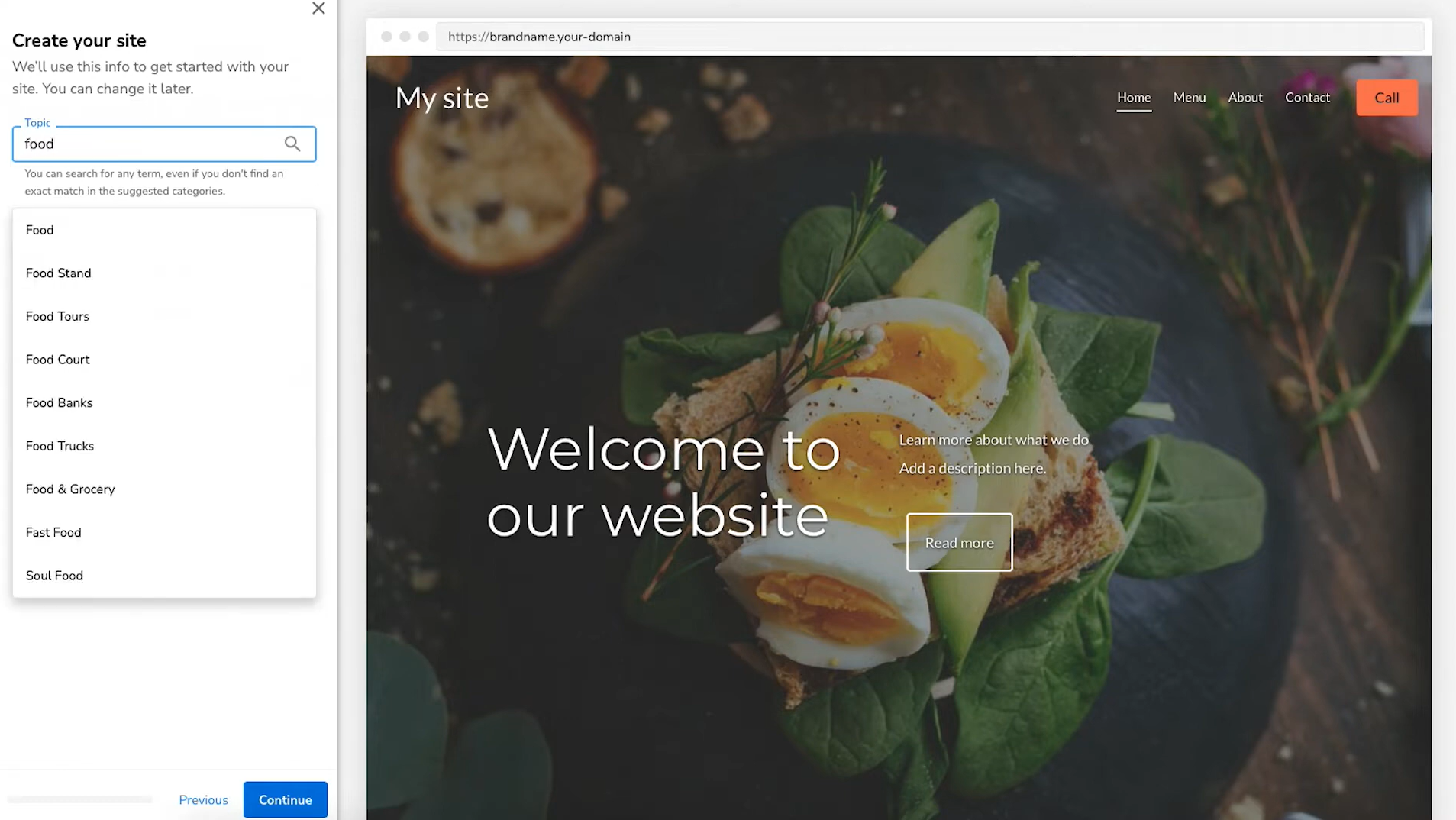
User Management
User ManagementAssesses the platforms’ capabilities in managing user roles, permissions, and accessibility.Score Components:
- Role Customization (40%): Flexibility in creating and defining user roles and
permissions. - Ease of Management (30%): User interface and tools for managing users.
- Access Control (20%): Effectiveness of access control measures for different user
levels. - Scalability (10%): Ability to manage a growing number of users efficiently.
 9.1
9.1
 3.2
3.2
🏆 Winner: Drupal
. Drupal’s flexible permission and role system allows for an unlimited number of users to manage and edit a website, only constrained by server capacity and practical management considerations. Administrators can create various roles, such as “Editor” or “Administrator”, each with customized permissions. There’s no inherent limit in Drupal on the number of users with administrative or editing capabilities, enabling extensive collaboration and content management possibilities. On the other hand, iPage’s website builder offers very limited multi-user functionality and access levels compared to more sophisticated website builder platforms.
Drupal User Roles and Access Levels:
| Role | Description | Access Highlights |
|---|---|---|
| Editor | Users responsible for content creation, editing, and publishing. | Can create, edit, delete, and publish content; can also manage comments. |
| Moderator | Users focused on site moderation, including comment and user management. | Can approve or delete comments, block users, and manage reported content. |
| Administrator | Users with full access to all administrative features of the site. | Can change site configuration, manage all content, users, permissions, and install modules/themes. |
iPage does not provide information about user roles and access levels.
Additional Features

|

|
|
|---|---|---|
|
SSL Certificate |
|
|
|
Custom Domain |
|
|
|
Free Custom Domain Included |
|
|
|
International Domains |
|
|
|
Mobile Responsive |
|
|
|
Page Speed |
|
|
|
Website Builder Mobile App |
|
|
|
Convert a Website To An App |
|
|
|
Website Analytics |
|
|
|
Multilingual Sites |
|
|
|
Multiple Users |
|
|
User Feedback
Users appreciate Drupal for its ease of use, security, and flexibility as an open-source CMS, highlighting its ability to scale and support a variety of websites and applications with modern technology tools. The community and documentation are frequently mentioned positives, providing ample support and resources. However, criticisms include a relative lack of plugins and themes compared to competitors like WordPress, the learning curve for customization without coding, and some challenges with installation and updates. The platform is praised for its robust content management capabilities, enabling users to manage content and user access efficiently. Overall, feedback underscores Drupal’s strength in creating secure, customizable, and scalable web solutions, despite some desires for more intuitive UI and easier setup.
Unfortunately, there is no user feedback summary available for iPage to provide a comparison.
The making of this blog
We followed a clear, step-by-step process to write and research this article.
FAQ
Which platform is better for complex, customized websites?
Is iPage a good option for beginners?
How do Drupal and iPage compare in terms of ecommerce capabilities?
Which platform offers better support and learning resources?
Can I host my website on both Drupal and iPage?
Which platform is more affordable?
How do the platforms compare in terms of website speed and optimization?
Which platform is better for SEO and marketing?
What about security features?
Can I manage multiple users on both platforms?










